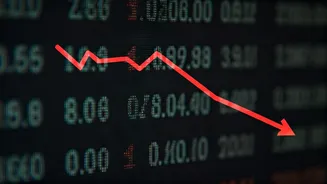GMP's Significance Explained
The Grey Market Premium (GMP) offers a preliminary assessment of investor sentiment surrounding an upcoming IPO, reflecting the premium at which shares
are anticipated to trade before their official listing. This 'unofficial' market operates outside the purview of formal regulatory bodies, facilitating trading of shares prior to their debut on exchanges. It serves as an early indicator of the potential success of an IPO, but it is essential to recognize that it isn't an infallible predictor. The GMP is determined by a variety of elements, including market demand, investor confidence, and the overall economic landscape. High GMPs often suggest strong investor enthusiasm and potentially significant gains for those who get an allocation, while low GMPs, or a decline in GMP, might imply a more cautious approach from investors. However, it's crucial to acknowledge the speculative nature of the grey market, as prices are subject to frequent fluctuations based on prevailing market conditions and investor perceptions. Considering the GMP is just one factor among many is important when evaluating an IPO's prospective performance.
The GMP's Dramatic Fall
In the case of the Lenskart IPO, a substantial downturn in the GMP has been observed ahead of the official listing, which will occur on Monday. The specifics of the percentage decrease were not provided, but the fact that such a considerable dip happened before the listing day suggests changes in the perception of the IPO by potential investors. The decrease in GMP suggests a possible shift in sentiment regarding Lenskart's valuation and prospective performance on the stock market. Several external factors, such as broader market conditions, sector-specific dynamics, and economic forecasts, could affect this decline. The decline in the GMP might cause a sense of uncertainty among investors. It's important to remember that such price changes don't necessarily determine how the stock performs in the long run. Market reactions are complex, and the movement of the GMP serves only as a snapshot of investor sentiment at the time, not a precise forecast of future results. It is important to stay updated with relevant market analysis to make informed decisions.
Investor Implications Unpacked
For investors, a declining GMP prior to an IPO's listing warrants careful consideration and a reassessment of expectations. While a lower GMP may diminish the chances of a massive listing-day profit, it does not necessarily imply poor long-term investment results. Instead, it indicates that initial exuberance about the IPO may have moderated. Investors need to evaluate their investment strategy, taking into account their risk tolerance, investment horizon, and the company's long-term prospects. For those who have secured an allocation, a lower GMP might indicate a more modest listing gain. Alternatively, it might indicate that the shares have been priced appropriately from the beginning. This might also suggest that the stock is potentially undervalued by the market. When considering investing, it is important to delve deeply into the fundamentals of the business, its strategic goals, and the competitive environment. The GMP is one of several elements that must be considered to make an educated choice regarding an IPO investment. Ultimately, success relies on thorough research and a comprehension of market dynamics, which helps make well-informed decisions.
Factors Behind the Shift
Several factors might contribute to the significant drop in the Lenskart IPO's GMP. The overall market climate, which is affected by global economic trends, inflation rates, and geopolitical occurrences, can affect investor confidence and sentiment. A downturn in the broader market could diminish the interest in new IPOs. The dynamics unique to the retail sector may also have played a role. Changes in consumer behavior, increased competition, or any company-specific challenges could have an impact on market views. Furthermore, investor sentiment is greatly influenced by the company's valuation compared to its peers. If the IPO price is seen as too high relative to comparable businesses, the GMP might decline. Any unfavorable developments during the IPO's application period, such as modifications to the issue's size, price range, or regulatory concerns, may also cause a drop in the GMP. To comprehend the reasoning behind the GMP decline, it's necessary to take into account these diverse and interrelated factors.
Looking Ahead To Listing
As Lenskart gets ready to make its public market debut on Monday, investors must stay informed about market movements and adapt to changing conditions. The initial listing performance will be determined by the interaction between demand and supply in the market, in addition to the GMP. Even if the GMP has decreased, the stock price might fluctuate following the listing, depending on how investors react to the company's official entrance onto the market. Keeping an eye on trading volume, price volatility, and any news or announcements from the firm will be important in the early days of trading. Investors are encouraged to reassess their initial expectations and adjust their tactics in light of the new information that emerges after the listing. The company's long-term prospects, strategic goals, and execution of its business strategy should be the key focus for investors who take a long-term perspective. While the initial listing performance offers a snapshot of the market's reaction, it doesn't always reflect the company's long-term success. Careful observation and thoughtful investment decisions are key for investors.













